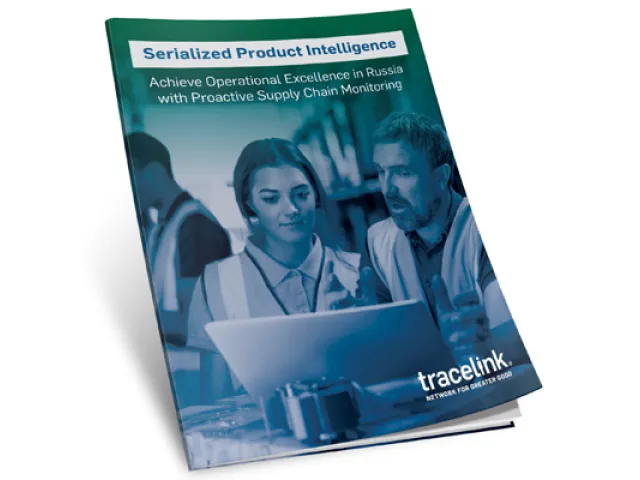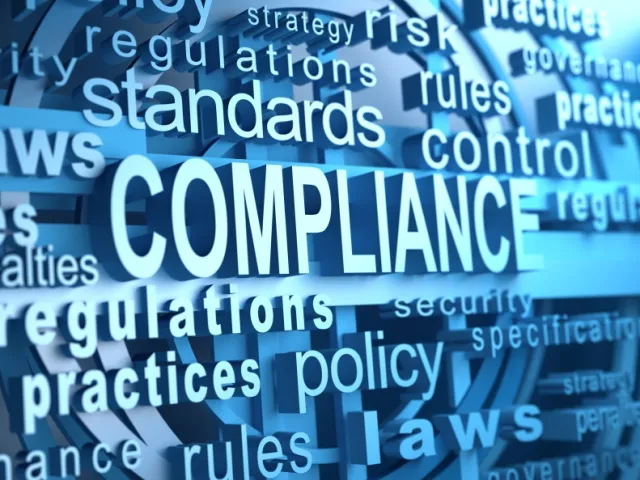Table of contents
In May, the Russian government passed new track-and-trace requirements covering biologically active food supplements (BAFS) such as vitamins and minerals. This puts pressure on pharmaceutical manufacturers to meet these new compliance requirements in accordance with the deadlines outlined by the implementation timeline.
TraceLink has been tracking and preparing for this digital marking initiative for the past year, culminating in the release of our latest track-and-trace serialization solution, TraceLink Russia BAFS Compliance. This new solution for the food supplement product category makes it easy to meet what are some of the most complex serialization requirements in the world.
This article offers an inside look into Russia’s digital marking initiative. You'll discover how the latest food supplement serialization requirements impact the industry, what manufacturers need to do to prepare, and how TraceLink can help ease compliance burdens.
Russia’s Serialization Success and Expansion to Food Supplements
To protect consumers, prevent illegal smuggling and diversion, and curtail unauthorized sales, Russia has spent the last few years launching an extensive digital marking program. This program, which already spans 16 different product categories covering everything from food items to car tires, has been successful due to its comprehensive track-and-trace approach. The Russian population has also bought in, making full use of a scanning app that enables them to take an active role in reporting counterfeit and suspect goods as well as price gouging.
Medicines is one of the product categories covered by the digital marking program since 2020 and now the Russian government has expanded mandatory serialization and traceability requirements to food supplements, antiseptics, and medical devices. After a successful pilot, the Russian government signed the food supplements regulation into law with Decree 886 on May 31, 2023, and established a series of deadlines to enforce the adoption of these requirements.
There are six total deadlines that companies operating in this space must be mindful of:
- September 1, 2023: All food supplement products and the domestic entities involved in the supply chain of food supplements must be registered in the Russian government’s track-and-track system (TT GIS).
- October 1, 2023: All food supplement products must be marked with mandatory crypto codes, and reports regarding the utilization, aggregation, and introduction into circulation of regulated products must be submitted to TT GIS.
- November 1, 2023: Importers must include the marking codes of consumer packaging and the code of group packaging units in their customs declarations.
- March 1, 2024: All stakeholders must report product withdrawal from circulation.
- May 1, 2024: All stakeholders must start using the electronic document exchange system (EDO) to report the sale/receipt of products using volume/GTIN-level reporting.
- September 1, 2025: All stakeholders must have implemented unit-level traceability for food supplement products.
Capabilities Required to Meet the Food Supplement Requirements
While Russia’s serialization program offers consumers much-needed protection from counterfeit and dangerous products, the complexity of the requirements can make compliance difficult. There are a significant number of compliance events that require manufacturers to generate and submit reports, and report generation also requires a high degree of coordination between trading partners and system operators.
With the latest food supplements regulation, there are multiple deadlines looming and much to be done ahead of them. This includes updates to artwork, preparation of packaging lines, registration to the government system, adapting to the new business processes, creation of new SOPs, and new system integrations with partners.
Adding to the complexity is that the food supplement product category has significantly different requirements and reporting mechanisms compared to the medicines category. Serialized medicines are reported to MDLP, while serialized food supplement products are reported to TT GIS. Each of these government systems has its own unique workflows and choreographies for reporting. Even if a company already has experience meeting serialization compliance requirements for medicines, complying with the new food supplement requirements is still a significant hurdle.
To meet these complex food supplement requirements in accordance with the implementation deadlines, pharmaceutical manufacturers need three key capabilities:
- Serial number and crypto code management. Manufacturers must be able to create serial numbers for the food supplement market, connect to the appropriate systems to request and receive crypto codes, maintain crypto code and serial number pairs, and allocate serial numbers with crypto codes to packaging lines and contract packagers.
- Commission, aggregation, and event triggers. Manufacturers need to be able to receive commissioning and aggregation information from packaging lines and contract packagers, manage changes to packaging hierarchies and corresponding aggregation, capture serial numbers of sampled, destroyed, and otherwise decommissioned products, and automate reporting after certain businesses process events.
- Reporting. Manufacturers must connect securely to the OMS and TT GIS central system, create properly formatted reports for submission, and maintain history and audit trails of submitted reports.
TraceLink: Your Solution for Russia Food Supplement Compliance
TraceLink Russia BAFS Compliance provides manufacturers with the capabilities they need to meet the reporting requirements for food supplement products.
Russia BAFS Compliance is designed specifically to generate reports for regulated products as they move through the supply chain, enabling manufacturers to submit compliance reports to the Order Management Station (OMS) and to the TT GIS system. Item-level serialization and aggregation will introduce unprecedented transaction processing and report generation requirements, and TraceLink Russia BAFS Compliance provides a highly scalable solution that enables manufacturers to meet these needs.
TraceLink is also committed to maintaining and updating our compliance solution to meet evolving regulatory requirements, enabling manufacturers to devote their IT resources to other pressing matters. The latest release of the Russia BAFS Compliance solution exemplifies this, adding new reporting capabilities that capture the serial number of a container along with the serial numbers of its contents. Manufacturers can generate these reports automatically using event triggers or manually via the web UI.
Meeting the new food supplement serialization requirements is challenging, especially with the complexity of the requirements and the accelerated compliance timeline. Trying to meet these requirements by reporting manually or implementing solutions from providers with little experience puts your business at risk. Companies that fail to comply risk losing market share and revenue generated from that associated product.
TraceLink has proven experience in serialization and reporting, with 120+ manufacturers relying on our Russia Crypto and Medicines Compliance solutions. Get in touch with us today and see how easy it can be to meet the world’s most complicated regulatory requirement.






